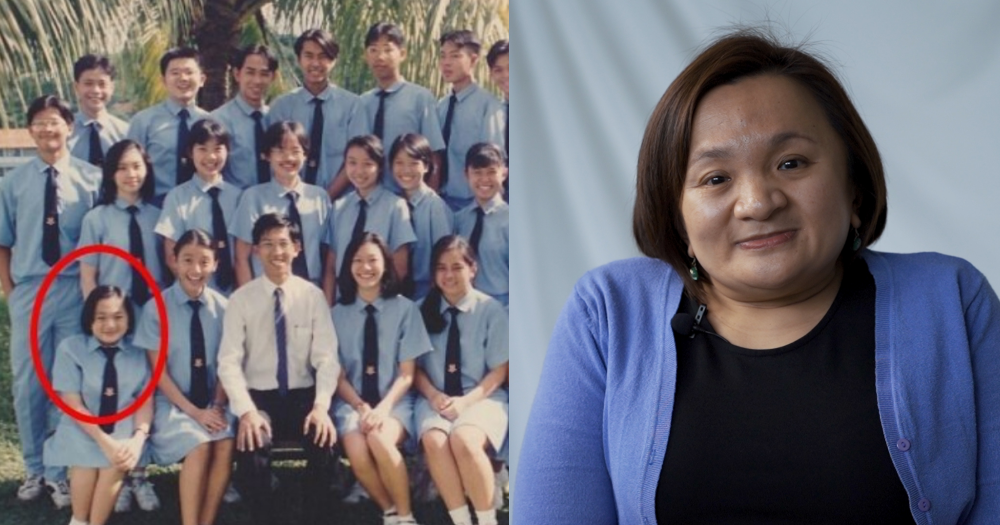Follow us on Telegram for the latest updates: https://t.me/mothershipsg
20 years ago, Serene Ho tried to take her life — twice.
The then-26-year-old was frustrated by her first unsuccessful attempt, and ran home to swallow half a bottle of pills.
As the pills went down her throat, a wave of panic swept over her; she immediately knew that it was a mistake.
"I realised I didn’t want to die. But yet I didn’t know what to do with my life.”
Unknown to her at that time, her suicide attempts were a cry for help.
“I felt like no one could help me, nobody wanted to hear my story any more. Everybody’s sick of my story, even I was sick of my own story.”
20 years later, Ho shares with Mothership the story behind her suicide attempts and the turning point which made her realise that life is every bit worth living.
A lonely childhood: “I felt like a bird in a cage”
Ho was born with brittle bone disease, which stunted her development.
As a result, she was much shorter than peers her age, a fact that she was acutely aware of growing up.
Her condition also meant that her bones would break easily; she spent the ages of seven to 12 growing up in a hospital so that she could be supervised.
“I was in this hospital where I didn't have many peers to play with. I was surrounded by many adults. I felt like I had to grow up very fast.”
As the youngest of five children, her siblings and father were often too busy with their own lives to visit her often.
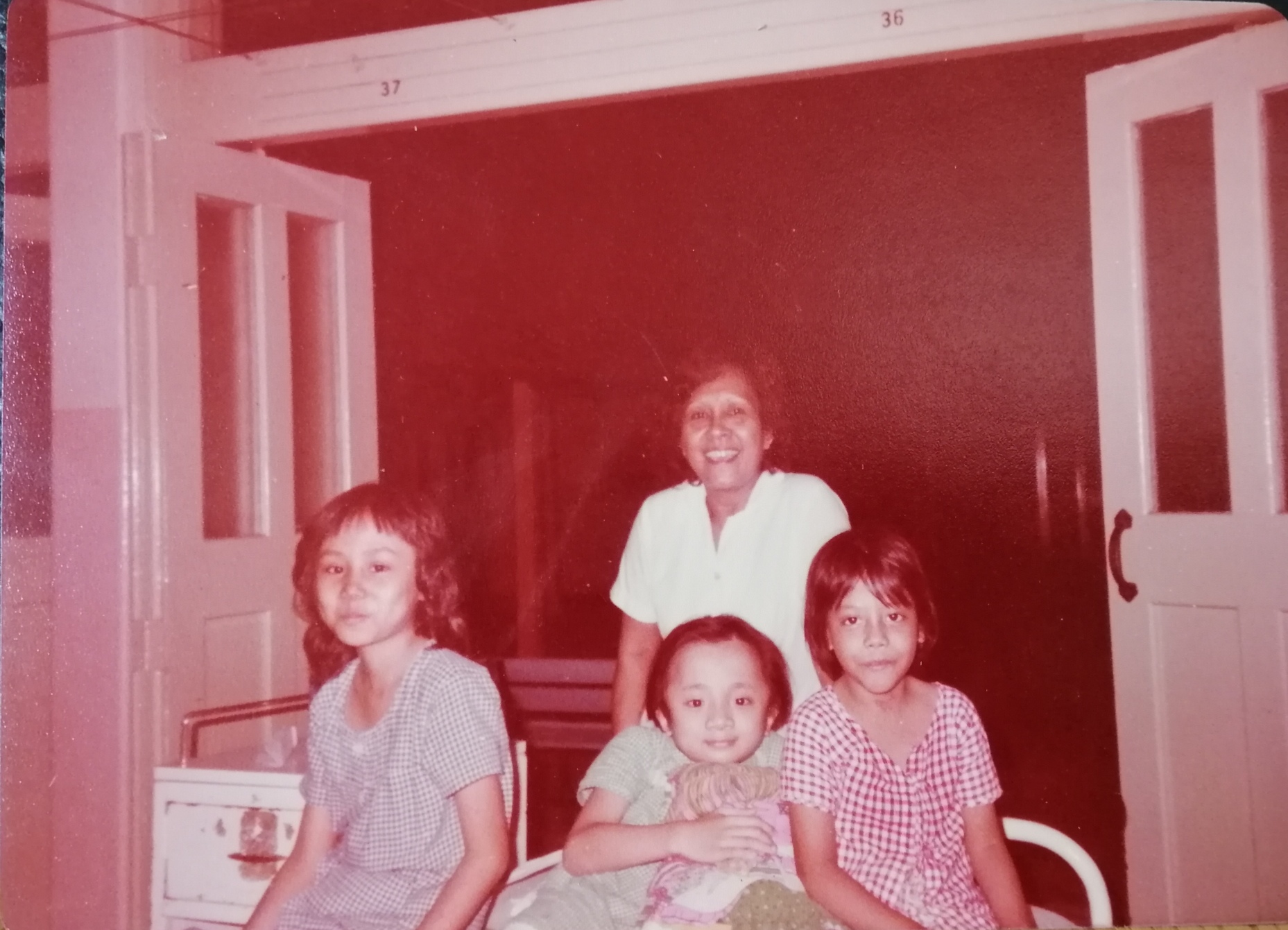 Serene with other patients and a staff at the children's hospital. Photo courtesy of Serene Ho.
Serene with other patients and a staff at the children's hospital. Photo courtesy of Serene Ho.
Her mother, however, would visit once a week and ensure that all her needs were met. As a result, Ho was extremely close to her mother:
“My mum was my world. I always felt like I was in a single parent family, it was just my mum and me. We were each other’s best friends. I didn't get to form a relationship with the rest of my family.”
Yet, she described her mother as “the most loving prison officer”.
Always fearful that her daughter might fall and break her bones, Ho's mother seldom allowed her to go out with her friends, something that as a teenager, Ho desperately wanted to do.
“I felt like a bird in a cage,” she said.
The social isolation, coupled with Ho's distinct physical appearance, made her a social outcast among her friends. For example, when her friends went in a circle asking what each other’s ideal boyfriends were, they would skip Ho’s turn.
“I felt like, eh, maybe I don’t deserve a boyfriend, maybe I wasn’t ‘qualified’ to have one,” she recounted.
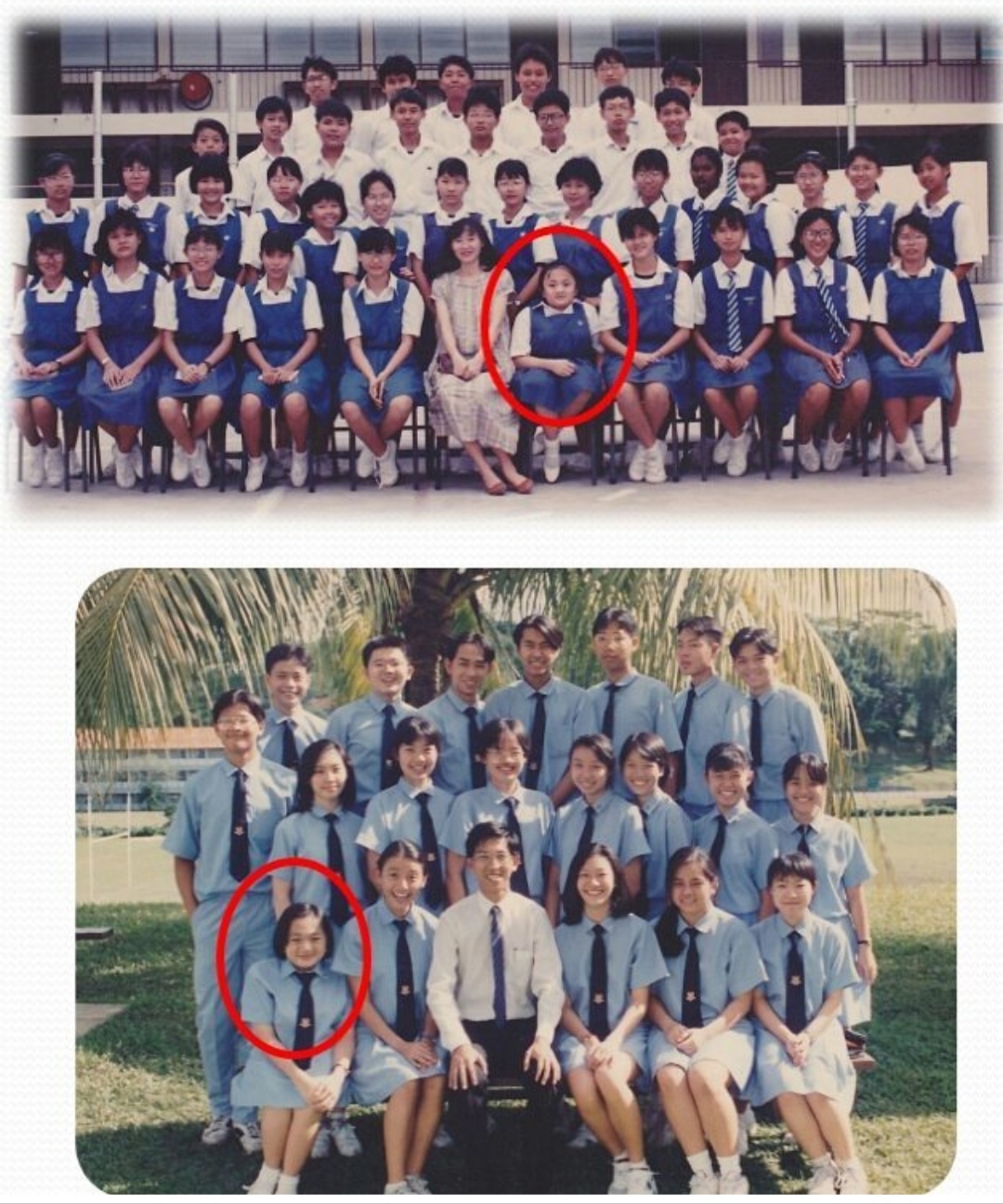 Top: Serene with her class from St Theresa's High School.
Top: Serene with her class from St Theresa's High School.
Bottom: Serene with her class from Catholic Junior College. Photo courtesy of Serene Ho.
Her loneliness and poor self esteem made her harbour suicidal thoughts as a teenager, but she never seriously considered it, and instead often used it as a tool to gain sympathy from her mother.
“I would threaten suicide as emotional blackmail, and my mother would come and sayang me.”
The sudden loss of her mother
Ho’s world came crashing down at the tender age of 19 when her mother passed away from kidney cancer.
Ho still vividly recalls the last time she saw her mother alive during a visit to the hospital one day before the latter passed on. Her mother held on to her dearly, with tears in her eyes.
But Ho did not think much of it, unaware of her mother’s quickly deteriorating condition. She didn’t stay for long, and even went to watch a movie after.
The news of her mother's death wracked her with both yearning for her confidante, and the immense guilt she felt about leaving her bedside.
Ho choked up as she recounted seeing her mother's lifeless body in the hospital:
“I kept calling [for] her and screaming, until I had no voice.”
Her mother’s death also pushed her further away from her family members, whom she thought were guilty of keeping her in the dark about her mother’s condition. It was only years later that she learnt it was her mother who instructed the family to keep this information from her.
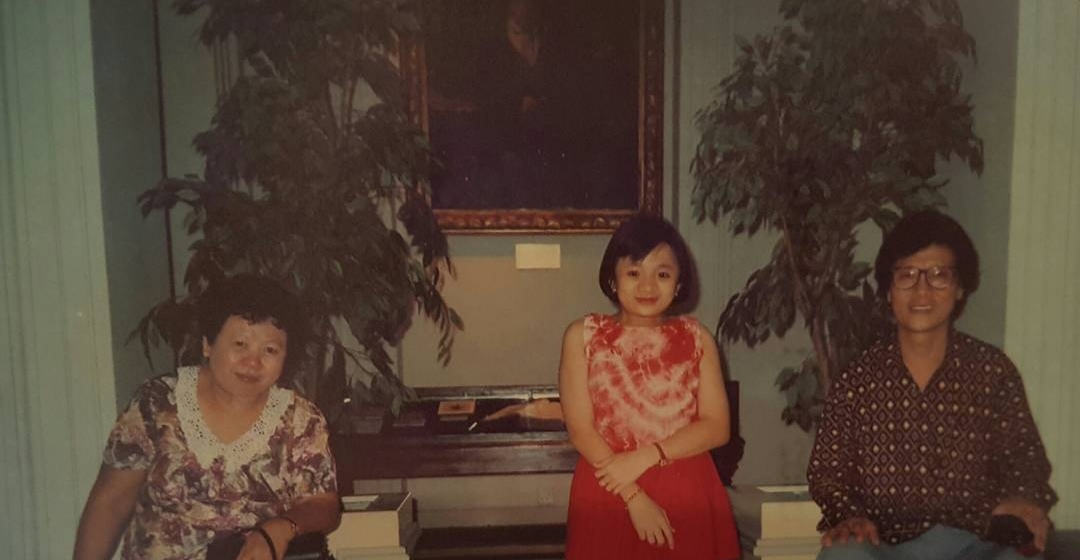 A teenage Serene with her parents. Photo courtesy of Serene Ho.
A teenage Serene with her parents. Photo courtesy of Serene Ho.
But the damage was done; her relationship with her remaining family members — people who were virtually strangers to her— was already strained.
Her relationship with her father worsened even further when he chose to remarry someone younger than Ho herself.
Seeing her father move on so quickly with another woman made her feel uncomfortable to even spend time at home. She moved out, and fell into a deep depression soon after.
Why she chose to take her life
Ho soon started experiencing hallucinations and insomnia, and was diagnosed with depression and bipolar disorder when she was 24.
Medication prescribed by her doctors helped with the symptoms but the loss of her mother left a gaping hole:
"The medication helped to calm me down for a short period of time, but after that, I still had to find the meaning of life. I would wake up in the morning and I couldn’t understand why I am still alive. What am I supposed to do now that I'm alive?”
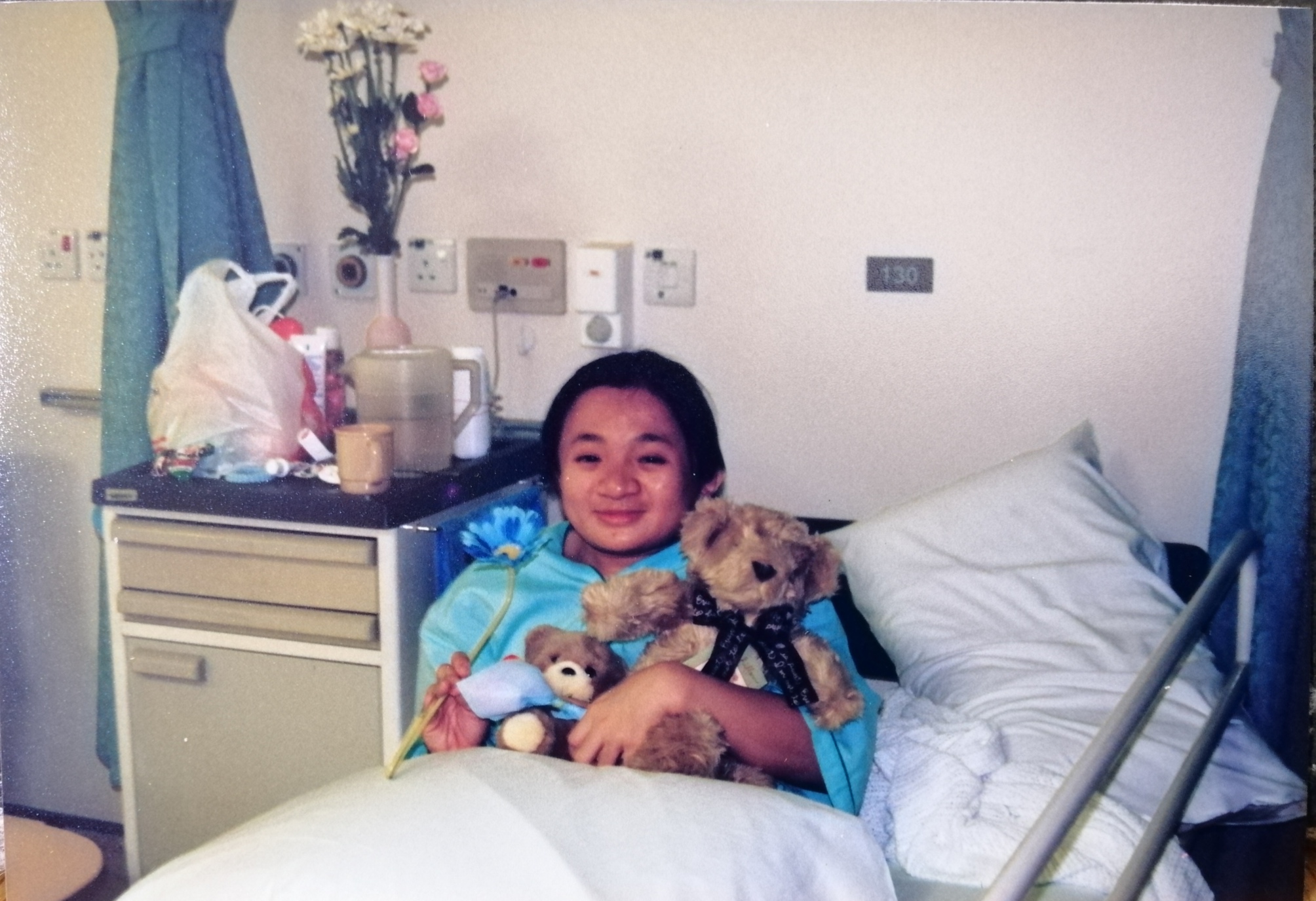 Serene at the hospital during her period of depression. Photo courtesy of Serene Ho.
Serene at the hospital during her period of depression. Photo courtesy of Serene Ho.
Ho said that her depression arose out of her inability to grieve fully over her mother's death. People often walked on eggshells around her, avoiding the topic of her mother altogether.
“When a person passes away, all you have left is memories. If other people don’t let you talk about your memories, you’re just burying them without having a proper grieving process.”
With her mother’s death, Serene lost all meaning to her life, she did not know how to carry on with life without her mother:
“I got my identity, my worth, my everything from my mum. When she's alive, I’m alive. When she passed away, I wanted to kill myself. I thought that if I killed myself, I could be reunited with her, somewhere.”
Seeing her family cry while she was in the ICU changed everything
Following her unsuccessful suicide attempts landed her in the hospital where Ho remembers being hooked up to multiple tubes. She also remembers the pain of having a tube shoved down her throat as doctors attempted to pump her stomach of the pills.
But these were not the reasons why her attitude towards suicide changed. The turning point for her was seeing the tears of her father and siblings when they visited her at the ICU.
“I had never seen them cry for me. That's when I realised that this life is not my own.
If I had actually died, it would have caused so much pain for them. They saw me alive, and already cried so much, if I were to die, it would have been a lot worse [for them].”
This expression of her family’s love, and having a glimpse into the pain they would feel if she had been successful at her suicide attempt, made Ho realise that she mattered to the people around her.
“I always think that if the other people who had committed suicide, if they were like me, to see the tears of their family members, they probably would not have killed themselves.”
Thankfully her revelation was not the only thing that turned her life around. After Ho was discharged from the hospital, a friend introduced her to Christianity which helped her come to terms with her disability and her self-worth. The church also provided her a community which she found comfort in.
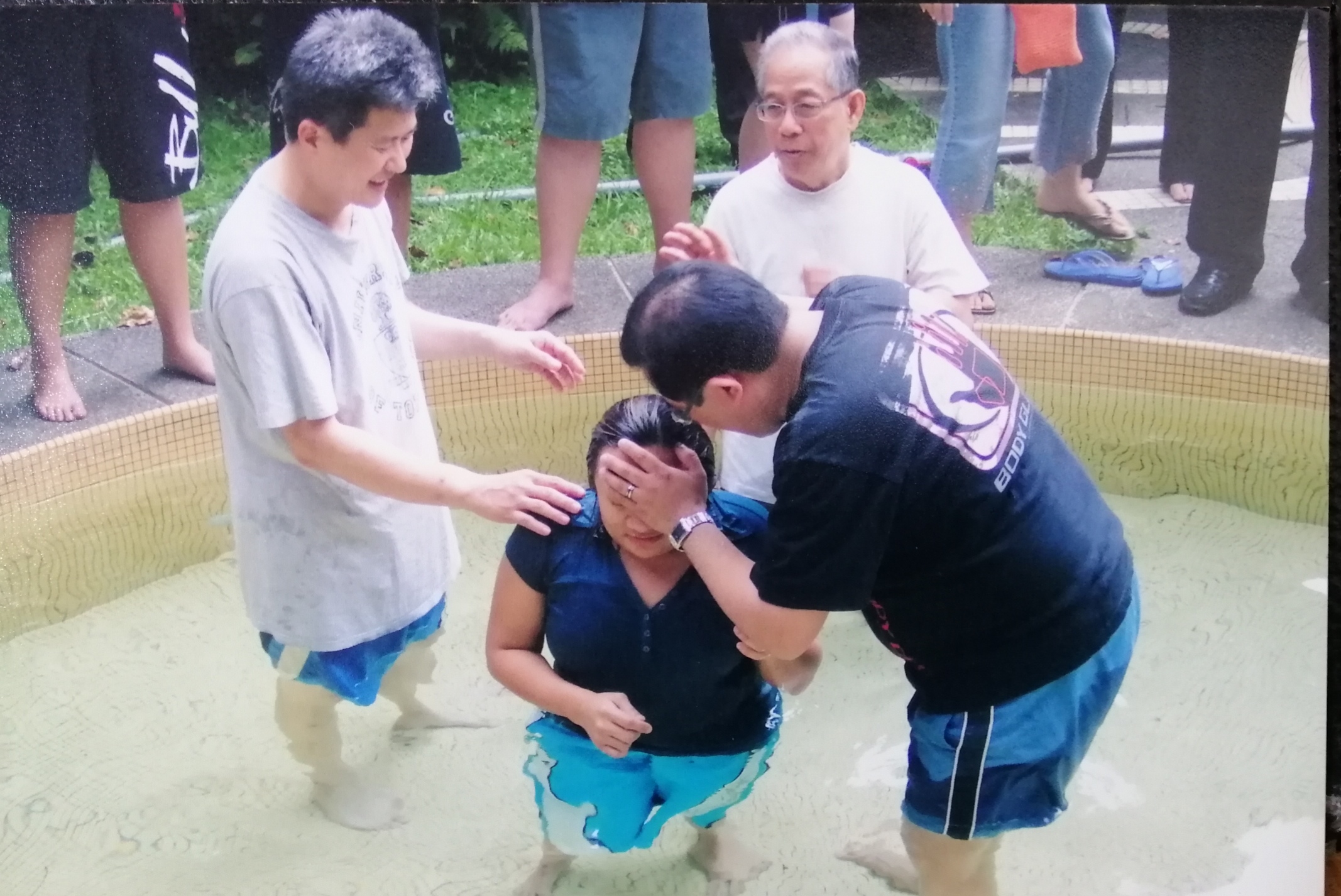 Serene at her baptism in 2007. Photo courtesy of Serene Ho.
Serene at her baptism in 2007. Photo courtesy of Serene Ho.
Talking about her mother’s death is still difficult for Ho to do all these years later; she admitted to seeking counsel from her pastor before feeling ready to do this interview.
But time has healed other wounds, and given her a fresh perspective.
“How I looked at my past was, I would put them all in a box called ‘all the sad things’. I couldn’t see the blessings in the sorrows.”
Looking back, she can now recall how a teacher and her schoolmates were there for her in the aftermath of her mother's death, and it surprises her how she wasn't able to see this when she was struggling with depression.
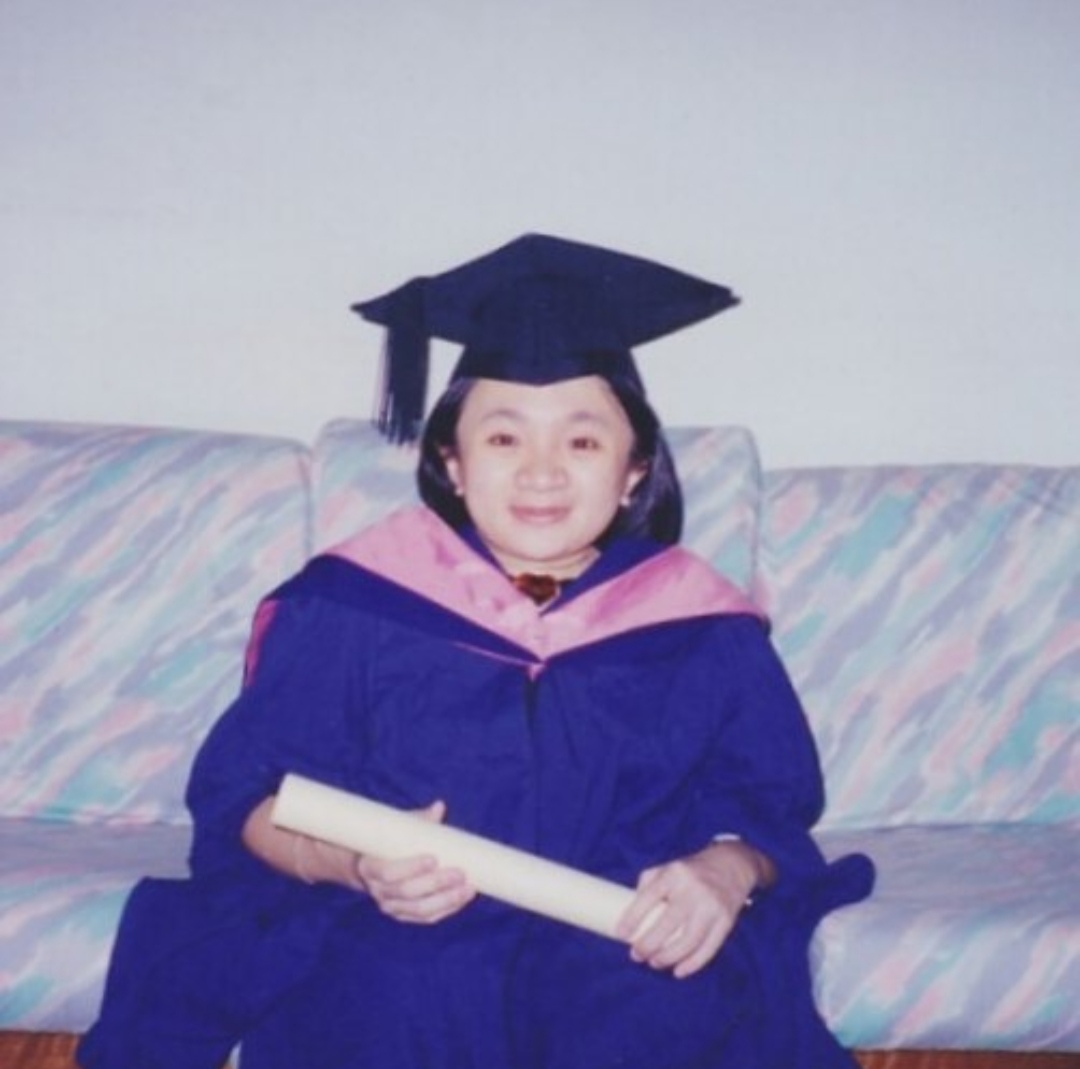 Serene graduated from the National University of Singapore (NUS) in 1998, she studied social work and Chinese language. Photo courtesy of Serene Ho.
Serene graduated from the National University of Singapore (NUS) in 1998, she studied social work and Chinese language. Photo courtesy of Serene Ho.
She’s also since come to terms with how her family members express their love for her.
“I always thought they didn't love me, or rather, I always expected them to love me like how my mother loved me. But I've come to realise that is unrealistic, because all of us love in different ways.”
Priorities have changed
Ho now derives great joy from her job providing tuition to children.
“My priorities have changed. I think investing in people’s lives is so much more satisfying, so much more important. Helping people find hope and a will to live is what I like to do now.”
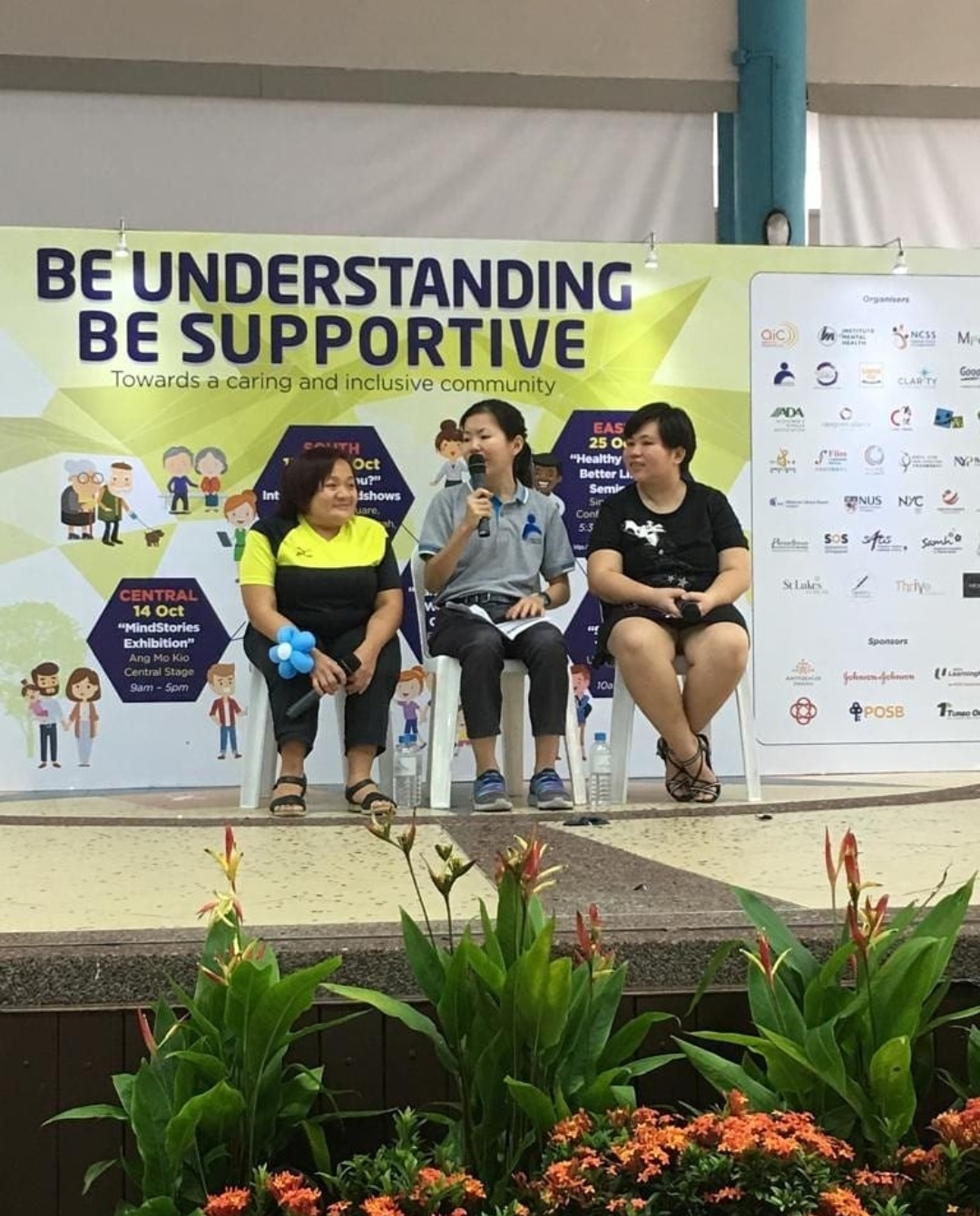 Serene speaking at the Mental Health Awareness Singapore Learning Series in 2018. Photo courtesy of Serene Ho.
Serene speaking at the Mental Health Awareness Singapore Learning Series in 2018. Photo courtesy of Serene Ho.
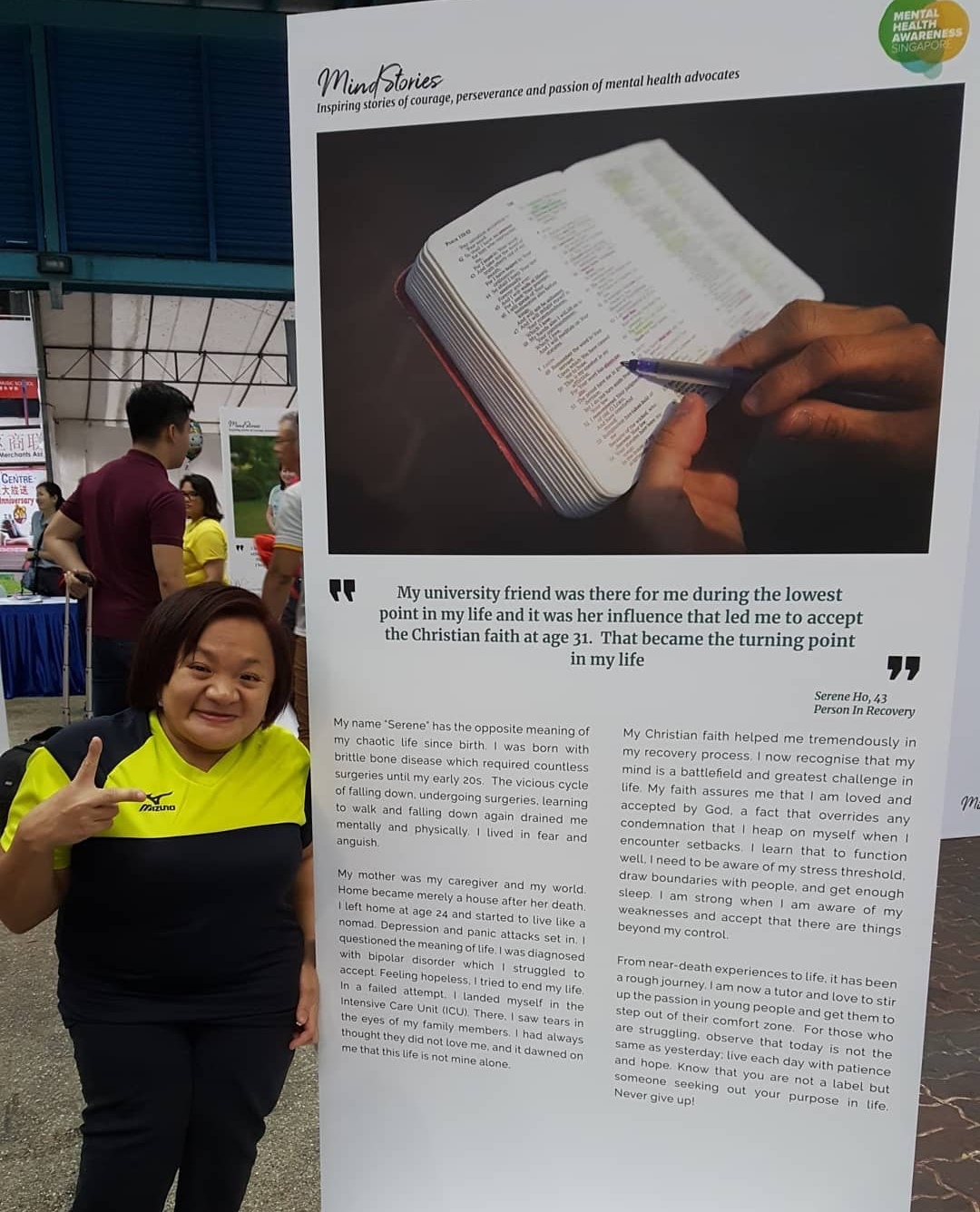 Photo courtesy of Serene Ho.
Photo courtesy of Serene Ho.
Her advice to people, as a suicide survivor?
“The most important thing is to not attribute your worth to things that will change. My mother was my world. So when she passed away, my world collapsed. You have to find out for yourself what your worth is.”
For those who are struggling with thoughts of suicide, Ho has this to say:
“Hang on, okay, hang on.
There is living hope, somewhere out there, not far from each one of us, waiting for us to just be alive, to be able to find that hope. I believe that everybody can find it, it's just whether you are willing to wait.”
At the age of 46, Ho now faces other medical issues, such as osteoarthritis and her recent discovery of a colonic polyp — which thankfully turned out to be benign — but her view of life and death has changed. In fact, she is worried that she might suffer a premature death just as her mother did.
“I think I have a different perception of death now. I definitely do not want to die prematurely. I think every life is precious, regardless of the circumstances.
No matter what, no one should take their own life.”
Helplines:
If you or someone you know are in mental distress, here are some hotlines you can call to seek help, advice, or just a listening ear:
SOS 24-hour Hotline: 1-767
Singapore Association for Mental Health: 1800-283-7019
Institute of Mental Health: 6389-2222 (24 hours)
Tinkle Friend: 1800-274-4788 (for primary school-aged children)
Stories of Us is a series about ordinary people in Singapore and the unique ways they’re living their lives. Be it breaking away from conventions, pursuing an atypical passion, or the struggles they are facing, these stories remind us both of our individual uniqueness and our collective humanity.
Follow and listen to our podcast here
Top photos courtesy of Serene Ho and Abriel Tay
If you like what you read, follow us on Facebook, Instagram, Twitter and Telegram to get the latest updates.
